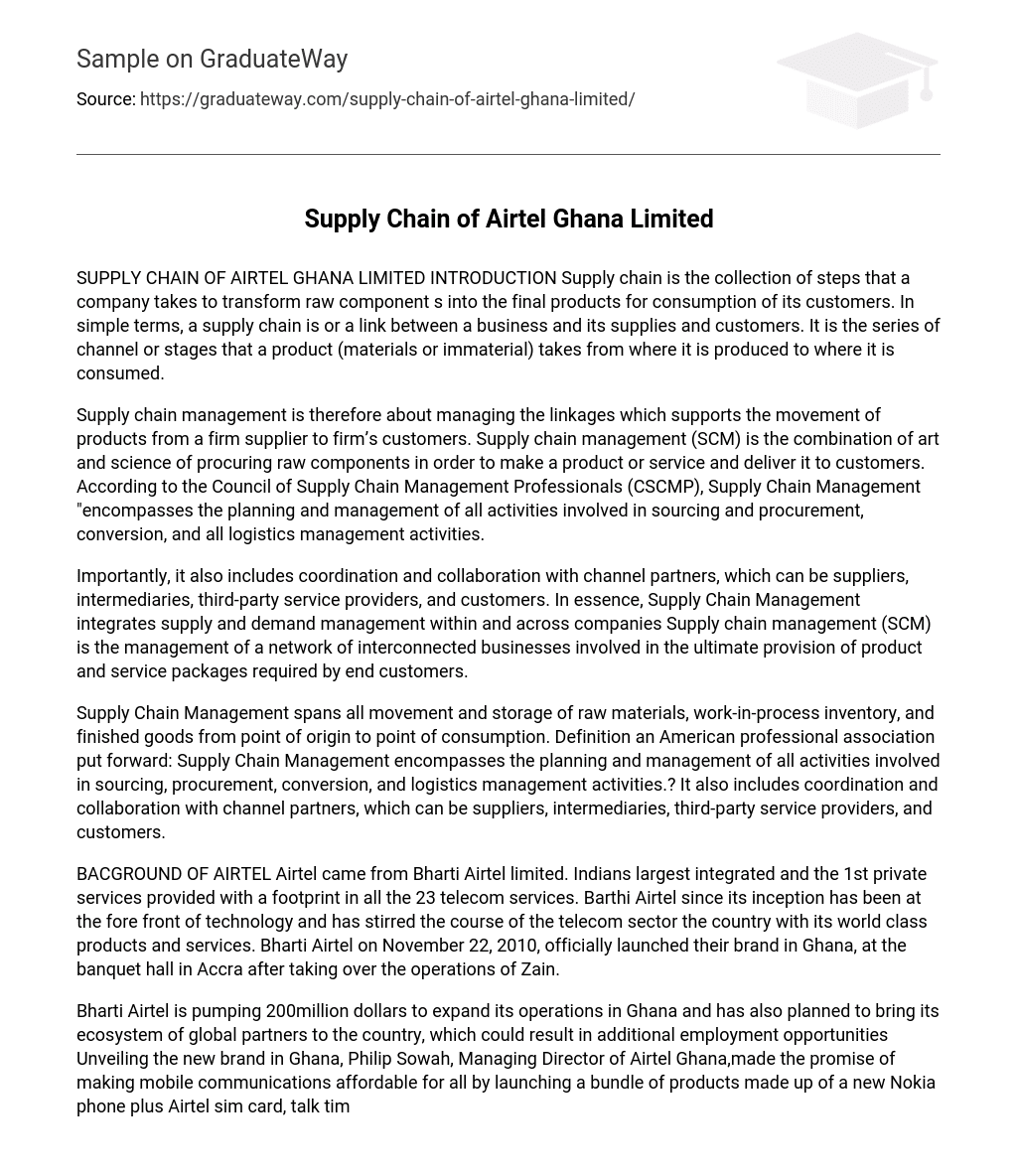The supply chain is a company’s process of transforming raw materials into final products for customers. It acts as a link between the business, suppliers, and customers. The supply chain includes multiple stages or channels that a product (whether physical or non-physical) passes through from production to consumption.
Supply chain management involves overseeing the connections that facilitate the movement of products from a supplier to a company’s customers, including acquiring raw materials and ensuring their delivery. According to the CSCMP, it encompasses sourcing, procurement, conversion, and logistics management.
Supply Chain Management (SCM) is the process of coordinating and collaborating with different channel partners, including suppliers, intermediaries, third-party service providers, and customers. Its objective is to integrate supply and demand management within organizations and efficiently manage a network of interconnected businesses that work together to deliver products and services to final consumers.
Supply Chain Management is the process of moving and storing raw materials, work-in-process inventory, and finished goods from their point of origin to where they will be used or consumed. It encompasses planning and overseeing all activities related to sourcing, procurement, conversion, and logistics. Additionally, it involves coordinating and working together with various partners in the distribution channel such as suppliers, intermediaries, third-party service providers, and customers.
Airtel, which is India’s largest private company, originates from Bharti Airtel Limited. It operates in all 23 telecom sectors and has been a technology leader since its inception. Bharti Airtel has made a significant contribution to the telecommunications industry in India through its outstanding services. On November 22, 2010, they officially introduced their brand in Ghana at Accra’s banquet hall following the acquisition of Zain’s operations.
Bharti Airtel is investing $200 million to expand its presence in Ghana and intends to introduce its network of international partners to create more job opportunities. During the launch of the new brand in Ghana, Philip Sowah, Managing Director of Airtel Ghana, pledged to make mobile communications accessible to everyone by offering a bundle that includes a new Nokia phone, an Airtel sim card, and free talk time and sms credits.
Airtel Ghana, the most affordable telecom operator in Ghana, aims to provide affordable and innovative mobile services to everyone. This is reflected in the genuinely low tariffs and incentives that customers receive.
Our aim is to establish our company as a reputable and renowned corporate social responsibility organization at both regional and global scales. We aspire to be recognized as an authentic partner in community development, with a strong emphasis on education in the areas where we do business. Our utmost priority is making a positive impact on society and all those involved with our company, both presently and in the future. To achieve this goal, we implement community investment initiatives that empower individuals to reach their maximum potential, specifically addressing the educational requirements of disadvantaged children while emphasizing familial obligations.
There are five basic components of AIRTEL’s supply chain management (SCM).
- Plan: The plan involves the strategy for managing all the resources that are required to meet customer demand for the product or service. The planning requires developing a set of metrics to monitor the supply chain in order to make it efficient, reduce costs and deliver high quality and value to customers. It is the strategic activity of SCM and the companies need a perfect planning for managing all the resources that meet the customers demand for their product or service and satisfies the customer. SCM planning is to be developed in such a way that it costs effective and delivers high quality and value to customers.
- Source: This involves identifying and choosing reliable suppliers or or vendors to deliver the goods and services with which the company creates the product, developing a set of pricing, delivery and payment processes and creating metrics for monitoring and improving the relationships. The vendors should supply the inventory as per the demand and the SC manager should also take care of the quality of the material supplied, and verify shipments, transfer them to the manufacturing facilities and authorizing supplier
- Production: This is the manufacturing step and involves scheduling various activities required for production, testing, packaging and delivery. This is the most important step in the supply chain and has direct bearing on quality of product and productivity.
- Deliver: This is also called the logistics and involves coordination between various activities such as the receipt of orders from customers, developing a network of warehouses, arranging carriers to get products to customers and setting up of an invoicing system to receive payments.
- Return: This is the most problematic aspect of supply chain and involves receiving defective products back from customers as well as providing customer care. To effectively implement this process supply chain planners have to create a responsive and flexible network as it can be a problematic part of the supply chain for many companies.





